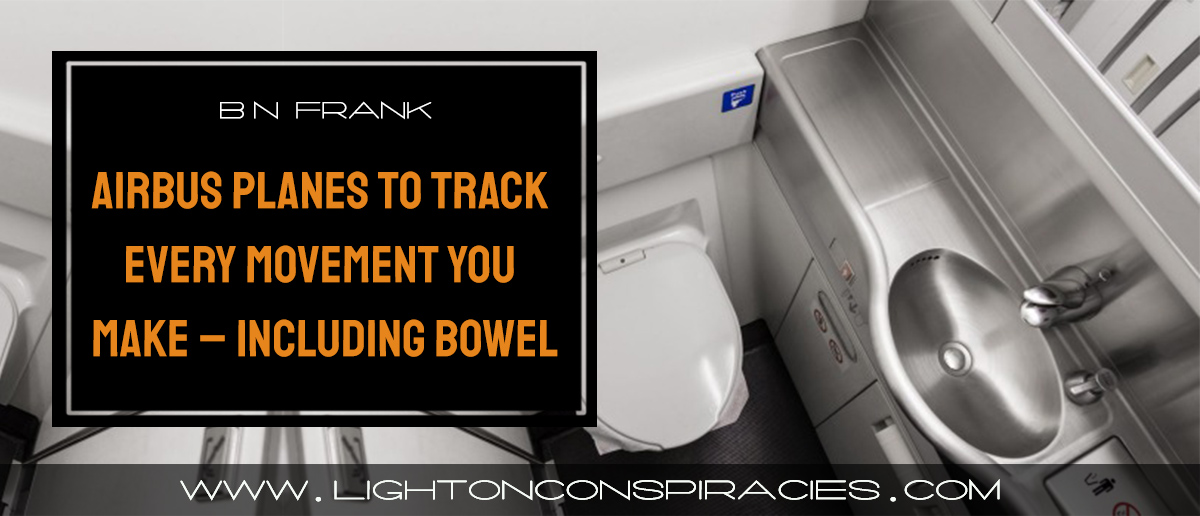 By B.N. Frank
By B.N. Frank
If the 60 Minutes Australia report about contaminated air making passengers and pilots sick wasn’t enough to make you stop flying, this just might do it.
Attention airline bathroom loiterers: The next generation of Airbus aircraft will track how long you’ve been in there.
It’s all part of an effort to make commercial cabins a digitally aware domain. The program is Airbus’s bid to raise the Internet of Things — that buzz-phrase for connected household gadgets — to cruising altitude.
FYI: The Internet of Things – otherwise known as “IoT” has a 74% failure rate. Security experts can’t say enough bad things about IoT including that it can cause catastrophic events including death. Many if not all of the components needed to operate IoT emit wireless WiFi radiation which is biologically harmful and can affect children more profoundly than adults (see 1, 2). If your pets fly with you, exposure can hurt them too.
Back to Bloomberg:
The Airbus Connected Experience aims to give flight attendants a more detailed survey of the cabin, with sensors for such critical data as when bathroom soap is running low and how much toilet paper remains in each bathroom. But the rethinking of the passenger environment doesn’t just stop with the lavatory.
At each seat, your belt will signal red for unbuckled and green when fastened. The goal is faster boarding and departure, dispensing with those lap-scrutinizing walk-throughs flight attendants must perform. The crew will also have access to information on what’s onboard and where, like which galley carts contain specific meals, such as preorders or vegetarian selections.
“It’s not a concept, it’s not a dream: It’s reality,” Ingo Wuggetzer, Airbus’s vice president of cabin marketing, said Tuesday at an aviation trade show in Los Angeles. Airbus has begun flight testing the connected cabin on its A350 test aircraft and plans to introduce it on the A321 family in 2021, followed by the larger, two-aisle A350 series two years later.
As cool as all of this may seem to you, the passenger, it’s just another way for airlines to squeeze more profit out of operations. While data from these various areas will be sent to flight attendant tablets or smart phones in real time, the crunching of that data over time is where the real value lies. The connectivity Airbus envisions for its cabins will provide an enormous trove of information airlines can use to analyze and optimize in their never-ending quest for cost efficiencies.
Worth noting: once Airbus collects this data on customers, they may decide to share it with other businesses – for a price, of course. This is referred to as “Surveillance Capitalism.” Activist Post has already published articles about businesses profiting from this often without customers’ knowledge or consent (see 1, 2, 3, 4, 5).
The article includes more flowery drivel about why all of this is so great for customers. It might leave some readers reaching for a vomit bag.
Activist Post reports regularly about issues associated with IoT and other new technology. For more details, visit our archives.
Image credit: Pixabay












